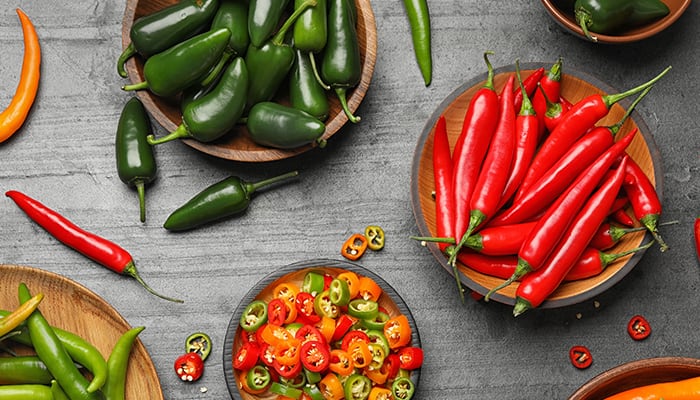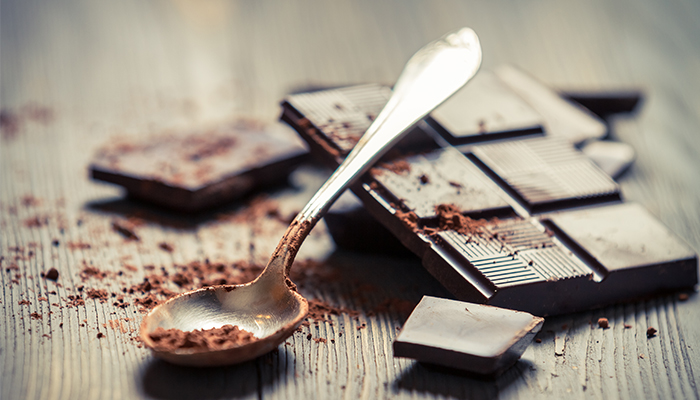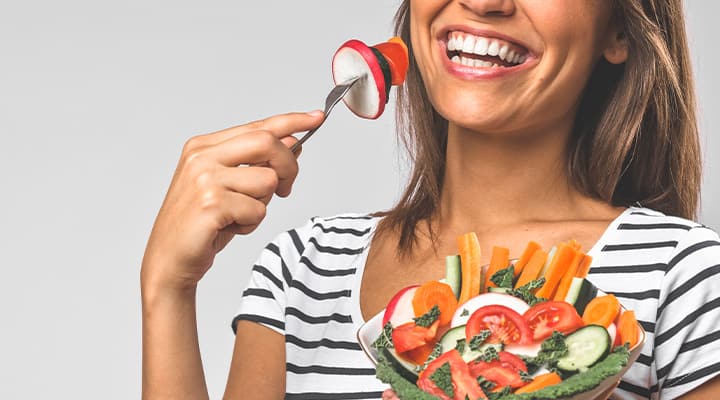
6 Ways To Boost Your Mood With Food
Published: May 2021
Want to spice up your mood? Start in your fridge. The foods you eat can actually make a big difference in the way you feel and may even help with depressive symptoms and stress. It’s probably not all that surprising, since eating is often thought of as one of life’s most fundamental pleasures. So let’s dig in. Perhaps some of your favorite foods have made it onto our list.
Perk up with a cup of coffee

Did you know that several studies indicate coffee drinkers are less likely to suffer from depression and depressive symptoms? The relationship was found in various studies of women who drank about four cups of coffee daily.1-3 The consumption of coffee was linked to a decreased risk of self-reported depressive symptoms in men, too.4
The culprit behind coffee’s mood-boosting effects is probably caffeine, since decaffeinated coffee did not produce the same benefits in these studies.
Caffeine modulates several neurotransmitters, including supporting the release of dopamine, a euphoria-inducing neurotransmitter.5
Fire up those endorphins with spicy foods

Go ahead and get it hot. When you eat spicy foods, your brain perceives pain. Consequently, it releases a flood of endorphins to help you feel better.6 Endorphins are some of your body’s feel-good hormones. They may have antidepressant effects.7
So it’s no wonder why some people say they are “addicted” to spicy foods. They were probably experiencing this all along.
Feel good with fruits and vegetables

We’re encouraged to eat plenty of fruits and vegetables for a reason. A systematic review of 61 studies confirmed that people who ate at least five servings of fruits and vegetables daily were happier and had better mental health.8
It just goes to show that you don’t have to eat unhealthy comfort foods when you’re feeling down. Bright berries, sweet melons and other produce offer a mood boost in addition to vitamins, minerals and other health benefits.
De-stress with a dark chocolate treat

This one may seem obvious, since eating chocolate makes just about everyone feel good. What many people don’t know, however, is that chocolate has been found to have calming effects. In a clinical trial, people reporting feeling highly stressed were given 40 grams (1.4 ounces) of dark chocolate daily. After two weeks, levels of stress hormones decreased.9 Similarly, consuming a polyphenol-rich dark chocolate led to decreased cortisol levels after four weeks.10
See the sunny side of life with this healthy yellow spice

Ever tried curry chicken? The yellow coloring is from turmeric, an Indian spice. Curcumin, a key ingredient in turmeric, has been clinically shown to exert strong antidepressant effects.11 Turmeric can be added to almost all of your dishes. It has a subtle flavor and is extremely healthy.
Spoon up some good vibes with yogurt

Yogurt, which can be served plain or dressed up with a variety of flavors, is loaded with probiotics. And the probiotics in yogurt aren’t just good for your gut, they’re good for your brain and mood, too.12
Studies show probiotics may improve mood and decrease depressive symptoms.13,14 This may be due to probiotic production of GABA, a calming neurotransmitter.15
Eating for physical and mental health
Feeling relaxed and happy after a good meal or a chocolate treat isn’t pure coincidence. Certain foods are calming, and research substantiates this. If you want to feel your best, remember, your diet must come first!
References
- Arch Intern Med. 2011;171(17):1571-8.
- J Affect Disord. 2019;256:468-472.
- Nutrients. 2018;10(9)
- Nutrients. 2018;10(9)
- Saudi Pharm J. 2020;28(4):445-451.
- Food Quality and Preference. 2002;13(7):431-443.
- Behav Pharmacol. 2020;31(2&3):122-135.
- Nutrients. 2020;12(1)
- J Proteome Res. 2009;8(12):5568-79.
- Antioxidants (Basel). 2019;8(6)
- Basic Clin Pharmacol Toxicol. 2020
- J Affect Disord. 2020;274:326-333.
- Brain, Behavior, and Immunity. 2015;48:258-264.
- J Gerontol A Biol Sci Med Sci. 2020
- Probiotics Antimicrob Proteins. 2020;12(3):973-979.
Always be in the know!
Access the latest deals, wellness news, expert health tips & more!




